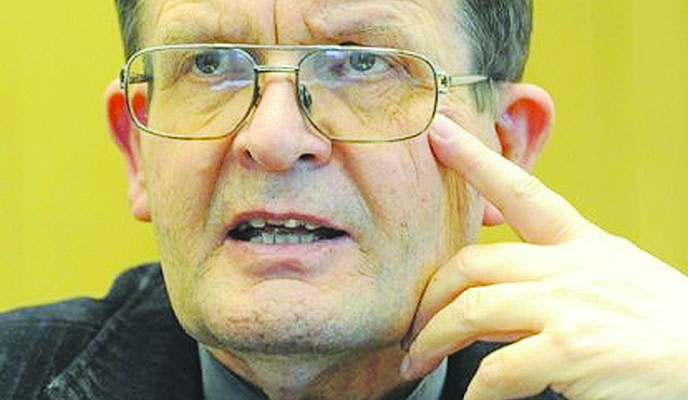
Human life is a great gift which has been put into our hands, it is a great responsibility. Created as men and women, we have been given marriage and family as our way of life.
By Fr Oskar Wermter SJ
Again and again pro-choice lobbies demand that “pregnancies” may be more easily “terminated”. We do not celebrate life so much as the power we have to destroy it. (NewsDay, Monday April 9, 2018, page 3, Abortion Laws).
In ancient Rome, the “pater familias” (father of family) was the absolute ruler of family and clan, and as such he had the power even to either accept a child born to him or reject it.
The mother had no say in the matter. If the father rejected the child as his it would die. His was a decision over life and death.
It took a long time to recognise that new-born children were a sacred gift and deserved our absolute love, just as parents expected absolute loyalty from them.
Love of children is deeply embedded in our cultures and we respect them as God’s creatures.
Medical science has made it possible to save premature infants or children with handicaps.
- Chamisa under fire over US$120K donation
- Mavhunga puts DeMbare into Chibuku quarterfinals
- Pension funds bet on Cabora Bassa oilfields
- Councils defy govt fire tender directive
Keep Reading
Once a child is accepted, a bond is formed once and for all, and even a child with a disabiliity knows where it belongs.
Great men and women of ancient Israel, like Abraham and Sarah, his barren wife, and Elizabeth and Joachim, and Hannah, mother of Samuel, prayed with all their heart for a child, to their God and Father.
A barren woman used to be sent away by her “vamwene” (mother-in-law, mother of husband).
In rural villages, some testing and a trial was not unusual before a prospective husband would commit himself to his bride and accept both mother and child.
At this moment, the crucial question seems quite different: Children that are unexpected or seem to be unwanted — how can we get rid of them?
How can we enjoy sexual intimacy, without being obliged to take responsibility for children we had not planned for?
Much more important is that every child born is welcomed with love and joy.
There is a place right in our midst called Mwana Anokosha Home.
Care is taken in that place of children whose fathers try to forget them, even though “a child is precious”.
Just now, we lose many children, sons and daughters, as migrants crossing rivers and seas on the way to “greener pastures”.
And yet young people, healthy and strong, in possession of many gifts and talents, are the greatest asset of a nation.
How come we talk about “population explosion”? Why are we not ashamed that we cannot educate our children and open up to them the world of work?
For some young men, the freedom not to accept children born to them seems all important. They feel their freedom has been compromised.
A young woman who has never considered motherhood as part of her career, or a family as her personal life plan, may be completely overwhelmed by suddenly finding herself with child.
A boy when told that he is held responsible for the child his girlfriend is expecting may want to run away or go into hiding until the danger of an “unwanted pregnancy” has been removed and he no longer has to fear such a responsibility.
A girl may act against her health and badly damage her physical integrity as much as the balance of her mind, especially since the boyfriend does not know how deeply he is upsetting the delicate nature of his child’s mother by his interfering and violent action.
She claims the boy responsible puts her under ever-growing pressure to seek help in destroying the “unwanted” child in her womb.
Parents who are their childrens’ friends may give them some “career guidance” into “responsible parenthood”, drawing on their own experience in childbearing and child-rearing.
Maybe such shared experience will give the young people courage to venture out into forming a family of their own.
Young people want freedom. But what kind of freedom? The freedom to destroy or to nourish life? The freedom to accept responsibility or to run away from it? The youngest baby joins in the family as soon as possible .
Young children like to play “housekeeping”, girls and boys together.
Often, they imitate their parents, aunts and uncles, grandpas and grannies.
And even the youngest baby has a place in “mahumbwe”, (Shona for ‘playing family’) being carried in a “mbereko” by an elder sister on the back.
What our youngsters should learn is to be able to embrace their new little brothers and sisters with joy and thankfulness.
The newcomers are not rivals, nor dangerous competitors, but they challenge the big ones to give and share and become more generous towards the little ones.
By comparison fewer children, or none at all, deprive us of the treasure of a family.
Those blessed with children should honour their Creator God with generosity and thank Him for the privilege of having the little ones as their companions through life. As a “mwana wegotwe” (youngest child) myself, I know what I am talking about.
I regret the small children who have been done away with while still in their mother’s womb, before they had a chance to develop their unique humanity, on this earth, which we share with them as our common home.
Fr Oskar Wermter SJ is a social commentator. He writes in his personal capacity.











